Turkey’s President Recep Tayyip Erdoğan has worked assiduously to infiltrate the social and political structures of rival nations throughout the world, particularly those with large Turkish expatriate communities. He does this through charities and non-governmental organizations (NGOs) that serve as fronts for his efforts. Erdoğan also relies on a network of loyalists who adhere to his cult of personality to promote his agenda.
The extent to which Erdoğan seeks to infiltrate Western democracies was first revealed with the 2016 release of more than 57,000 personal emails from the account of Turkey’s Minister of Energy Berat Albayrak by a Marxist group in Turkey. The leaked emails uncovered that Albayrak, Erdoğan’s son-in law, directed Turkish regime operations in America. They also revealed that he reported directly to his father-in-law about these efforts, and that contrary to his role as Minister of Energy, Albayrak spent an inordinate amount of time giving orders to – and receiving intelligence from – leaders of Turkish NGOs based in the U.S.
In the aftermath of the email hack, analyst Mehir Zeynalov expressed shock at “how astonishingly close Turkish non-profit organizations in Washington coordinate their activities with Ankara, particularly with Erdoğan’s family.”
The NGOs were not the first wave of Turkish influence felt in the West. In 2010, the Turkish government explicitly directed its Directorate of Religious Affairs to export an Islamist ideology outside Turkey’s borders. Following this directive, multiple Diyanet mosques or field offices were established in countries such as France, Germany, the United Kingdom, Australia, Canada, and the United States.
In the years since the hacking, Erdoğan’s autocratic enterprise continues to advance its influence through underhand means. New leaked documents obtained by Swedish counter-extremism group Nordic Monitor, for instance, reveal the Turkey Youth Foundation (TÜGVA) proposed a scheme where it would coordinate with NGOs across the West to aid Turkey’s security services in its information gathering and political influence operations overseas.
Erdoğan and his government’s efforts to infiltrate, influence, and gather information are fronted and supported by a network of Turkish diaspora media, charities, and NGOs based in the United States. Many of these organizations are intertwined with a significant network of Turkish religious institutions in the U.S, as well as other non-Turkish Islamist groups.
Some of the most prominent groups that appear to work on behalf of the Turkish regime are the Turkish American National Steering Committee (TASC), the Turkish Heritage Organization (THO), and the Independent Industrialists and Businessmen Association (MUSIAD) USA, along with their array of closely-connected partner organizations and officials.
The author sought out interviews with representatives of all three organizations.
Not one responded.
Turkish American National Steering Committee
The Turkish American National Steering Committee (TASC) is perhaps the most brazen face of the Turkish regime in the U.S. Founded in March 2016, TASC plays an active role campaigning for Erdoğan’s theocratic ambitions.
 Certainly, TASC does not hide its allegiances. As Benjamin Baird of Islamist Watch reported, “In a spectacle reminiscent of the cult of personality common among totalitarian regimes, TASC commissioned a box truck in September [2021] to drive throughout NYC displaying digital images of the Turkish president with the caption: ‘Love Erdoğan.’”
Certainly, TASC does not hide its allegiances. As Benjamin Baird of Islamist Watch reported, “In a spectacle reminiscent of the cult of personality common among totalitarian regimes, TASC commissioned a box truck in September [2021] to drive throughout NYC displaying digital images of the Turkish president with the caption: ‘Love Erdoğan.’”
TASC has acted as a bridge between Erdoğan and American Islamist groups, hosting events that allow the Turkish president to address these organizations and meet privately with their leaders.
TASC also goes after Erdoğan’s critics. Its official Twitter account was recently suspended for targeting and harassing Turkish NBA player and Erdoğan critic, Enes Kanter Freedom.
The Global Influence Operations Report states that TASC’s co-chair Günay Evinch “is a principal of Saltzman & Evinch, a law firm retained by Turkey and registered as a foreign agent of Turkey.” The firm received over $15 million from the Turkish Embassy between 2000 and 2020. It was compelled to register as a foreign agent after the Justice Department published an advisory opinion confirming that certain political consulting or public relations counsel on behalf of a foreign principle requires filing under the Foreign Agents Registration Act.
According to the Wall Street Journal, the Turkish Embassy retained Saltzman & Evinch “to gather information about its critics, including residents of the U.S.,” for a report that included personal information and social media history. Saltzman & Evinch also represented the Turkish government in a case involving Erdoğan’s bodyguards, who assaulted anti-Erdoğan protesters in Washington D.C. in 2017.
Furthermore, Evinch and his partner, David Saltzman, are among the largest donors to AKP-linked Turkish-American Political Action Committees (PACs). These PACs, collectively known as the Ten Thousand Turks campaign, collect political contributions from more than a dozen suspected AKP loyalists and registered foreign agents.
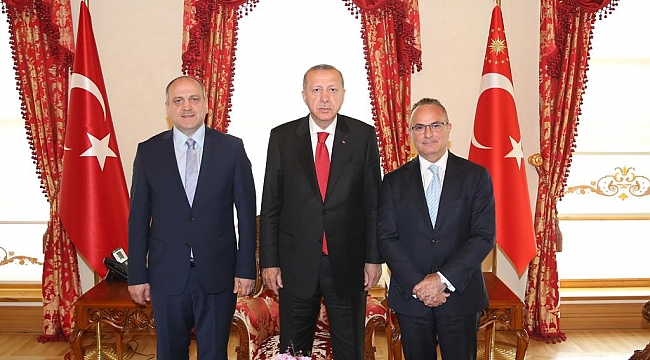
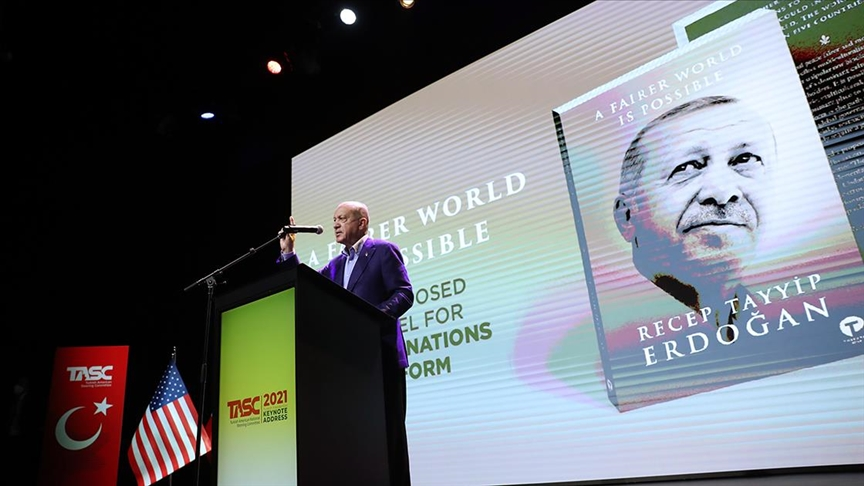
TASC co-founder Murat Guzel remains a board member of the organization and also serves as president at another pro-regime organization named MUSIAD-USA. Guzel is a prominent businessman who, in 2016, donated around $300,000 to the Clinton campaign.
In a leaked 2014 email to Erdoğan’s son-in-law Albayrak, Guzel commented that, “To stand by Erdoğan and do whatever we can against evil powers is not just an act of kindness but rather an Islamic obligation upon all of us.” Guzel served as a delegate to the 2020 Democratic National Convention and has donated almost a million dollars over the past few years to U.S. politicians and Turkish-American PACs.
Additionally, an email reveals that Guzel successfully lobbied former Congressman Dan Burton to draft an op-ed supporting Erdoğan and the AKP, telling Erdoğan’s spokesman in an email that this was done “without having to pay too much money.”
A little more than a month prior to the establishment of TASC in 2016, another article was published by Guzel in the Turkish regime-owned magazine Star, detailing how to lobby effectively in Washington D.C. Guzel’s article was later incorporated into an official AKP manual on foreign relations, according to the leaked emails.
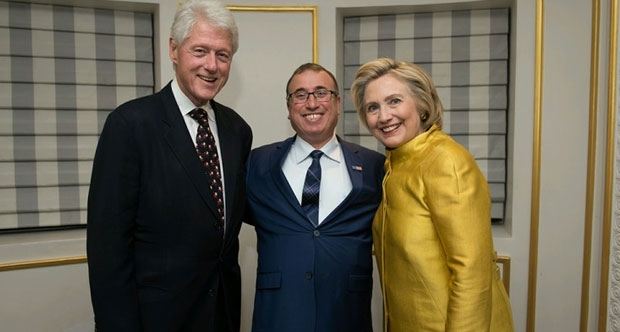
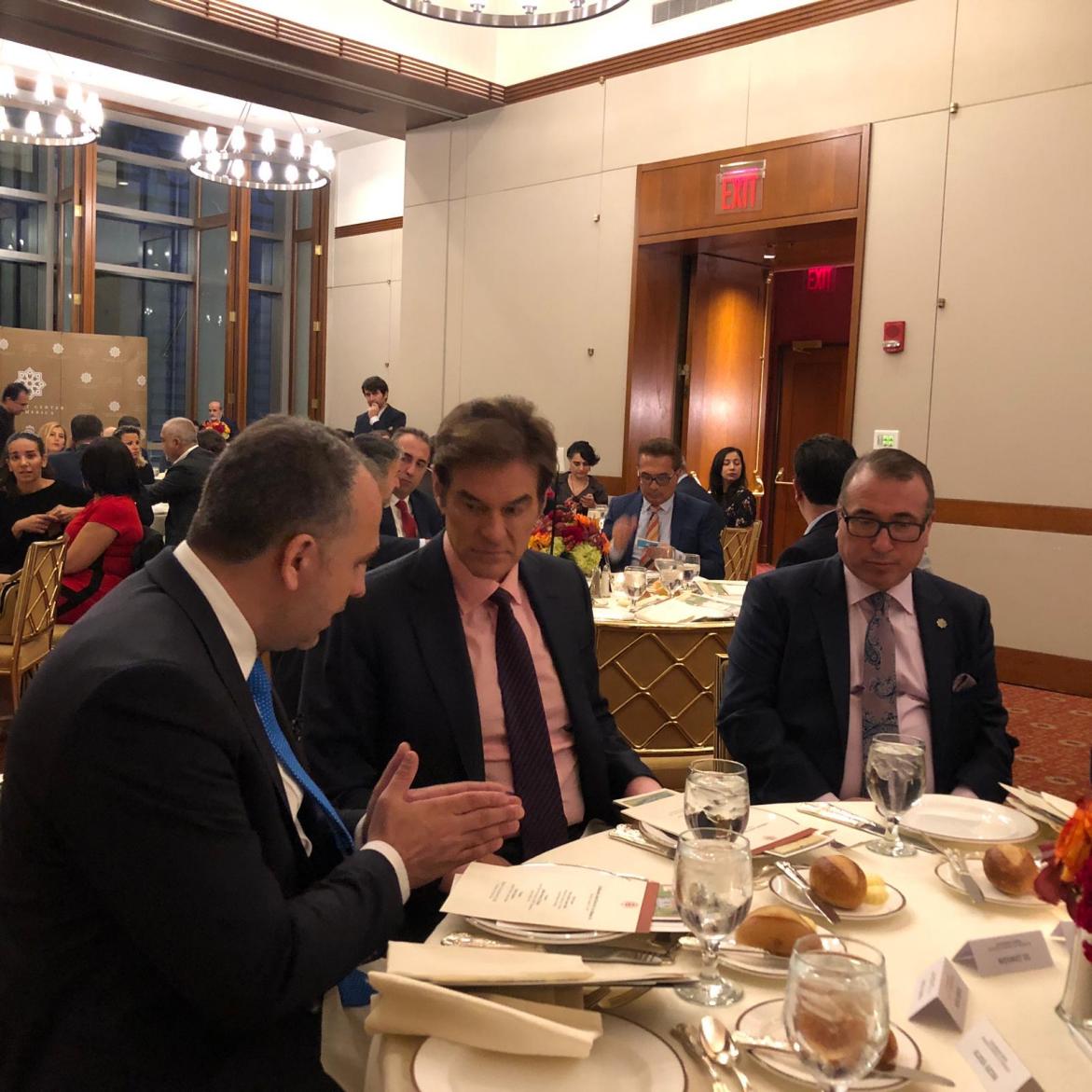
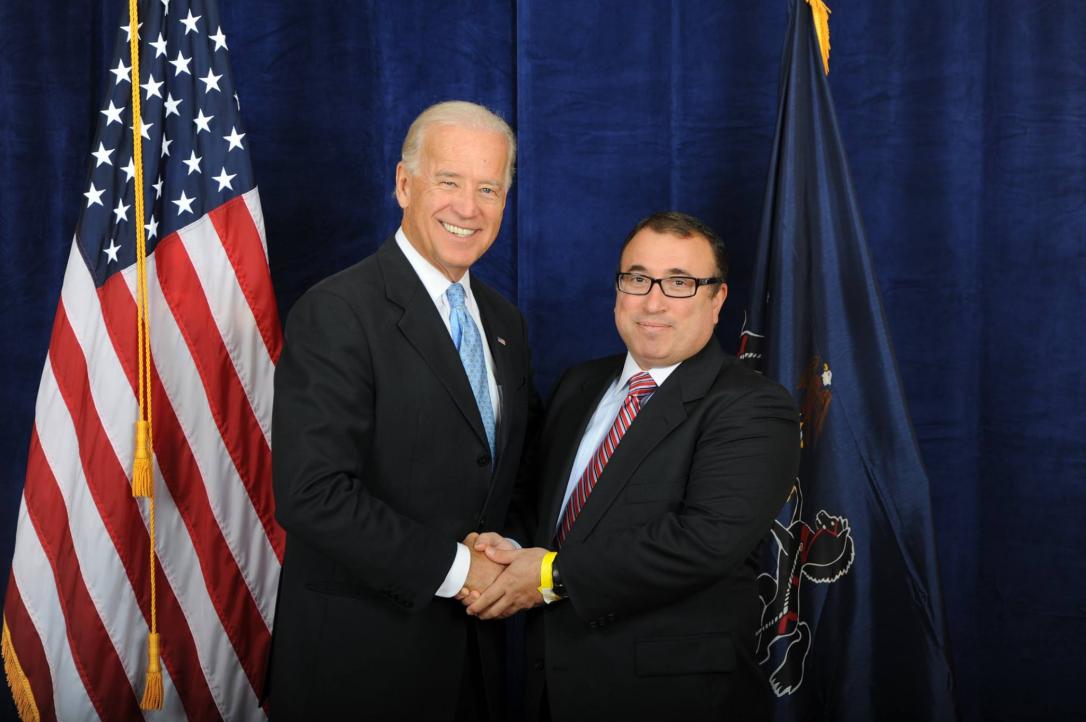
Erdoğan’s own cousin Halil Mutlu, meanwhile, is the other current co-chair of TASC.
Turken Foundation
Mutlu is also a former chairman of the extremist-linked Turken Foundation, of which Erdoğan’s daughter Esra Albayrak is on the board of directors. As analyst Levent Kenez notes, the Turken Foundation is yet another group that “overtly operates as part of the deep network of President Erdoğan in the US.” The foundation is currently involved in two big construction projects in New York, in partnership with another pro-AKP organization.
Nordic Monitor has reported that, “President Erdoğan’s son Bilal Erdoğan was one of two co-signers for the establishment of the Turken Foundation.” This fits a common trend of Erdoğan employing those closest to him to manage front organizations in the U.S. to represent his Islamist regime.
Turkish American Community Center
Co-founder and former president of TASC, Ibrahim Uyar, is also the former president of the Turkish American Community Center (TACC) in New Jersey, which admits to working “in full cooperation with the Republic of Turkey[‘s], Division of Religious Affairs (Diyanet).”
Uyar’s advocacy for the Erdoğan regime has not gone unnoticed. Uyar and other officials were reportedly questioned by the FBI in 2016 for their alleged role in promoting Erdoğan’s agenda in the U.S.
In emails to Albayrak, Uyar claims that FBI agents have accused him “of trying to intervene in American politics on behalf of President Erdoğan and working as a secret agent in the name of the Republic of Turkey.” After being “interviewed by the FBI about his work for the Turkish government” Uyar reportedly had his Green Card taken from him. He subsequently continued his work advocating for the AKP from Istanbul.
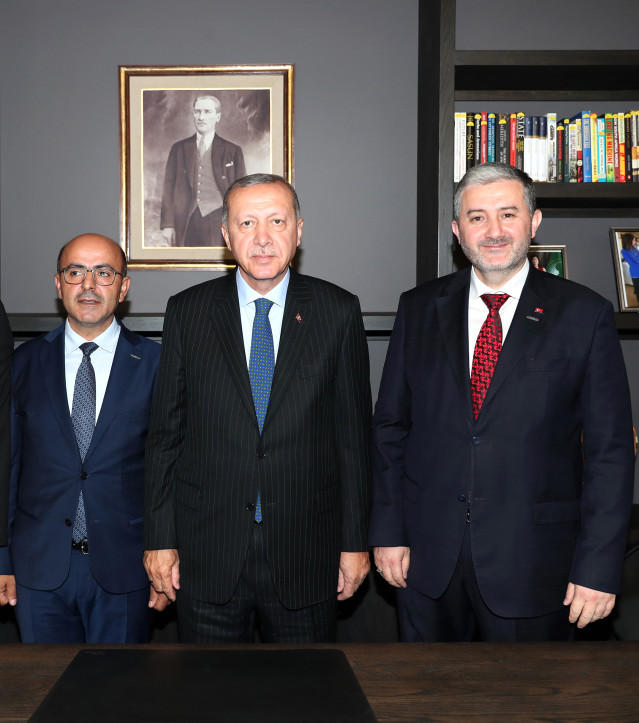
In 2017, TACC co-sponsored a “Muslim nonprofit leadership conference” for Turkish-American charities at the regime’s Diyanet Center of America near D.C, in collaboration with the U.S. Council of Muslim Organizations (USCMO). The event featured discussions on “safeguarding 501(c)(3) status” and means to circumvent government watchlists, financing regulations, travel bans, and “anti-Muslim immigration tactics.”
The organizer of the training, Khalil Meek, is the former president of the Dallas chapter of the Council on American-Islamic Relations (CAIR). He has been an overt supporter of convicted terror financiers. USCMO, meanwhile, is an umbrella coalition for Islamist organizations, and has close ties to Erdoğan.
Turkish Heritage Organization
The Turkish Heritage Organization (THO) was founded in 2014 by Halil Ibrahim Danışmaz, a loyal supporter of the Erdoğan family. In a 2012 email to Erdoğan’s daughter and son-in-law, Danışmaz discussed plans “to infiltrate Capitol Hill and the U.S. security establishments through front organizations and lobbyists under the guise of journalism.” According to a PowerPoint presentation attached to the email, Turkey could fund this effort and skirt lobbying restrictions by creating a “camouflaged shell organization to create a conduit for a problem-free funds-transfer.”
Danışmaz’s proposal appears to have been implemented through THO, which holds panels and publishes press releases that frequently echo an AKP agenda. According to Politico, THO was responsible for hiring D.C. lobbyists to execute a smear campaign against Fethullah Gülen, a Turkish cleric living in the U.S. who Erdoğan claims is responsible for attempts to overthrow the AKP government. THO’s lobbying efforts were reportedly coordinated by Ekim Alptekin, a Turkish businessman involved in paying former National Security Advisor Michael Flynn $600,000 “to perform investigative research” on Gülen and generate negative publicity of Erdoğan’s nemesis.
THO’s website indicates that it is funded by a series of Turkish companies closely intertwined with the Turkish regime. One sponsor, Turkish Airlines, is 49 percent owned by the AKP and paid Danışmaz’s salary prior to founding THO. He remarked in one leaked email in 2011 that no one could fire him “as long as the AK Party is in power.”
Another THO donor, TurkCell, was absorbed by the Turkey Wealth Fund, which now holds a controlling stake in the telecom giant and is chaired and controlled by Erdoğan. Still other THO supporters are close to the Erdoğan family and have been rewarded with lucrative government contracts and sweetheart deals.
Recently, THO appears to be interested in shedding its reputation as a Turkish proxy, featuring Turkish secularists and individuals jailed under Erdoğan’s government at its events. However, a significant number of these former prisoners were arrested during the first decade of Erdoğan’s administration in a purge orchestrated by Gülenist members of the Turkish judiciary, at a time when Erdoğan and Gülen’s networks were close partners.
With few exceptions, these former detainees seem to save much of their criticism for the Gülen movement and do not appear to significantly challenge the current government. For instance, İsmail Hakkı Pekin, the former chief of Turkey’s General Staff Intelligence Department who once called for Gülenists living abroad to be “exterminated wherever they are,” appeared at a 2016 THO panel and accused Gülenists of brainwashing children to take over the government.
MUSIAD-USA
When Ibrahim Uyar was being questioned by FBI agents over his work for Erdoğan in 2016, he was not just a TASC official, but was also closely involved with the U.S. branch of Turkey’s Independent Industrialists and Businessmen Association, an Islamist business group close to the AKP, and which is also known as MUSIAD-USA.
A Global Influence Operations Report claims that MUSIAD has financially supported the AKP and that its officials have left their positions to become AKP politicians.
TASC board member Murat Guzel is the founder and current president of MUSIAD-USA. As with Uyar, Guzel was also questioned in 2016 by FBI agents over his ties to the Turkish regime, according to leaked emails. Similarly, MUSAID board member and AKP politician Mustafa Tuncer—also owner of the U.S.-based AKP propaganda media company ForumUSA—was interrogated as well.
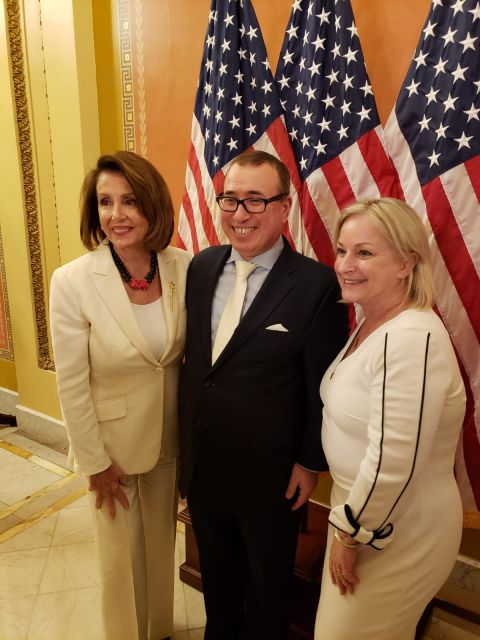
Tuncer is also a former member of the Board of Directors at TASC and was once in charge of its public relations. Tuncer’s regime links are numerous, and he also served on the Board of Directors for the regime’s Diyanet branch near D.C.
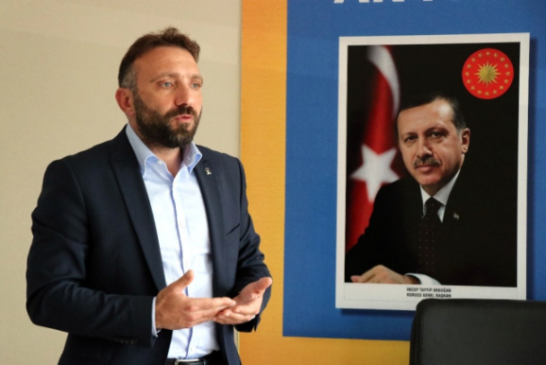
In 2017, with Tuncer in attendance at an AKP women’s day event in New Jersey, Erdoğan’s critics protested the government’s handling of sexual abuse cases, leading to attacks from a pro-AKP mob. It was reported that Derya Taskin, who once ran for an AKP political office reportedly, “prevented” local authorities from arresting the antagonists. A TASC co-founder, Taskin served as the group’s Secretary General and maintains links to MUSIAD. She was recently selected to the U.S. Electoral College in New Jersey.
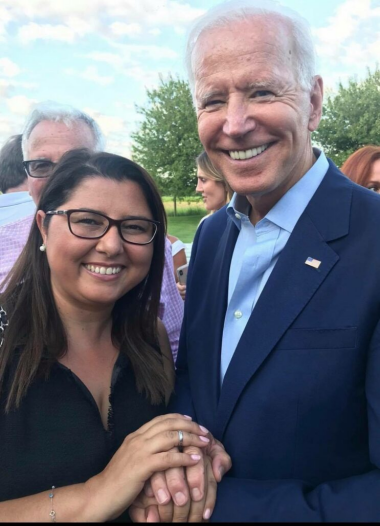
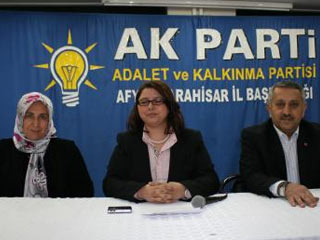
Fears of MUSIAD’s radical ties are not new. Investigative Project on Terrorism analyst Abha Shankar highlights that, under the previous secular Turkish government, “the Turkish Army blacklisted several Islamic businesses that included prominent MUSIAD leaders for bankrolling radical Islamist activities.”
Furthermore, academic Aylin Unver has noted that “Turkish businessmen, under MUSIAD have provided financial support to the Muslim Brotherhood” to further their Islamist agenda.
Tip of the Iceberg
The attempted coup against the Erdoğan regime in July 2016 represented the culmination of a powerful division between Erdoğan loyalists and those opposing the Islamization of Turkey. In the wake of the failed coup, AKP supporters have become more devout and entrenched.
The network is significantly larger than the few organizations focused on above. And the AKP loyalists mentioned in this report are far from the only examples of Ankara’s powerful presence in the United States.
One individual that comes to mind is the Western Director of TASC, Ergun Kirlikovali, who has been with the organization since its inception. Also a board member of the Turkish Philanthropy Funds (TPF)—a U.S.-based charity which has received almost $140,000 in loans from the U.S. government—Kirlikovali seems to be involved with just about every Turkish NGO in America. In an interview on TRT World, Kirlikovali carefully echoed all of Erdoğan’s talking points, conspiratorially adding: “the CIA and the United States was behind the [2016 attempted] coup.”
The Turkish Coalition of America (TCA) is another problematic Turkish American institution. TCA is registered as a public charity, shares headquarters with the Turkish Coalition USA PAC in D.C, and has openly announced partnerships with the THO, MUSIAD, and TPF “either through co-sponsorships or additional grants.”
Up until 2017, TCA’s founder, Yalcin Ayasli, was a prominent political donor to Erdoğan-linked PACs—which include the Turkish Coalition USA PAC and Turkish American Heritage PAC. He is also the lead officer of the Turkish Cultural Foundation (TCF), which has worked with its D.C. neighbor TASC in the past. In its most recent tax return, TCF reported total assets of almost $9 million.
Foreign Agents
Erdoğan is a political opportunist, and he has encouraged Turkish diaspora groups in America to co-opt and empower other, non-Turkish American Islamist organizations, who have shown to be willing proponents of his theocratic ambitions. With support from traditional Muslim Brotherhood groups such as CAIR, as well as endorsements from South Asian extremists like the Islamic Circle of North America, Erdoğan is mistakenly viewed by many as a champion of the Muslim American community.
Many American Islamist groups have learned to adopt progressive rhetoric to achieve legitimacy with the political left. The Erdoğan regime has also adopted this strategy when dealing with the West.
For instance, during a September TASC event in New York, the Turkish dictator proclaimed his country’s “leading role in the fight against Islamophobia,” and boasted that he has been at the forefront of an international effort to raise awareness of anti-Muslim bigotry in Western nations.
Yet ultimately, Erdoğan’s political pragmatism extends to both sides of the American political spectrum. At TASC’s September conference, Erdoğan also played on conservative sentiments, advocating for “the fight against irregular migration.” Unwilling to leave AKP interests to the political whims of American voters, Erdoğan is a bipartisan offender when it comes to using controversy to cement political alliances.
AKP influence is found across all levels of U.S. government, impacts both sides of the aisle, and even affects local communities. Many of these organizations have advanced Turkish regime interests in the United States for far too long without any oversight. Their continued operations threaten American democratic institutions. As Erdoğan reaches even deeper into U.S. politics, media, and the NGO sector, it has become clear, once again, that Turkish state government entities and their proxies must be made to register as foreign agents.
April 13, 2022: This article has been updated to include information provided by Saltzman & Evinch.